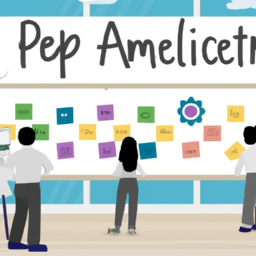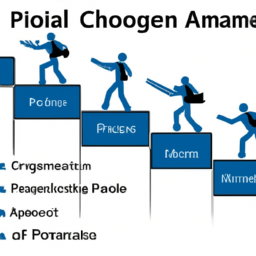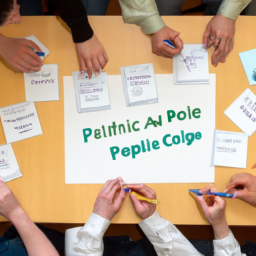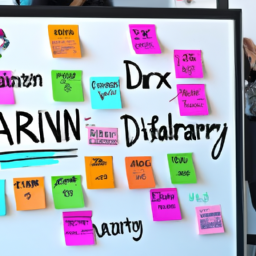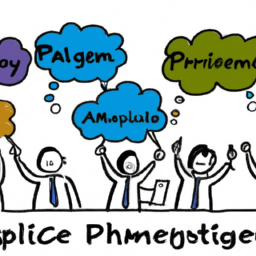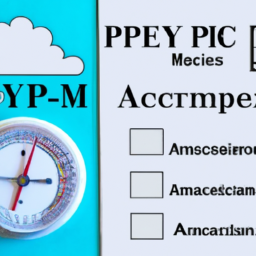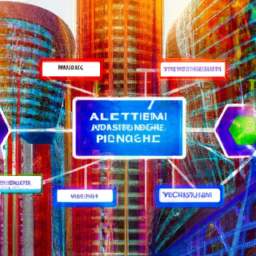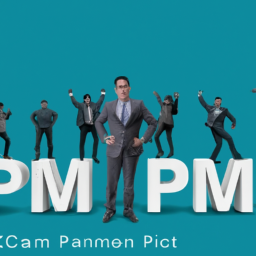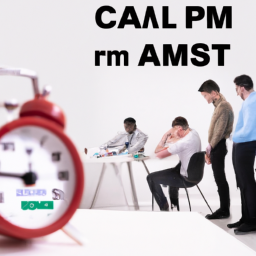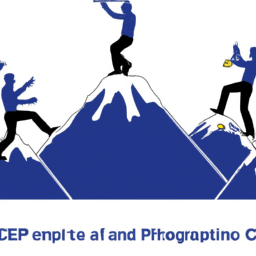Are you ready to transform your project management skills for the digital era?
The PMI ACP exam is here to help you do just that. With its emphasis on agile methodologies, this certification equips you with the knowledge and tools to navigate the ever-changing landscape of project management.
By adapting traditional approaches to the digital era, enhancing collaboration and communication, and embracing agile methodologies, you’ll be prepared to lead successful projects in today’s fast-paced, technology-driven world.
Key Takeaways
- Agile methodologies, like Scrum, provide flexibility and adaptability
- Traditional methods are insufficient for dynamic and fast-paced projects
- Digital transformation requires leveraging technology to streamline processes
- Embracing change and innovation to meet evolving customer needs
The Importance of Agile Project Management
Agile project management is crucial in today’s digital era. With the rapid advancement of technology and the ever-changing business landscape, traditional project management methodologies often fail to keep up.
Agile methodologies, such as the Scrum framework, provide a more flexible and adaptive approach to project management. By breaking down projects into smaller, manageable tasks called sprints, Agile allows for continuous improvement and collaboration.
This iterative approach enables teams to quickly respond to changes and deliver value to customers faster. The Scrum framework, with its defined roles, ceremonies, and artifacts, provides a structured framework for Agile project management. It promotes transparency, accountability, and effective communication among team members.
Embracing Agile methodologies and the Scrum framework is essential for organizations seeking to thrive in the digital age.
Key Benefits of the PMI ACP Certification
One of the major advantages of earning the PMI ACP certification is the ability to enhance your skills in the rapidly evolving field of project management.
This certification equips you with the knowledge and expertise required to effectively navigate the complexities of agile project management.
By obtaining the PMI ACP certification, you demonstrate to employers your commitment to staying up-to-date with industry trends and best practices.
This can significantly enhance your job prospects, as organizations increasingly seek professionals who can effectively manage projects using agile methodologies.
With the PMI ACP certification, you gain a competitive edge in the job market and open doors to exciting career opportunities.
The certification validates your proficiency in agile principles and practices, making you a valuable asset to any organization looking to adopt agile project management methodologies.
Adapting Traditional Project Management Approaches to the Digital Era
To effectively navigate the rapidly changing landscape of project management in the digital era, you must be willing to adapt your traditional approaches. The rise of agile frameworks and the need for digital transformation have reshaped project management practices.
Traditional project management methods, with their linear and sequential processes, are no longer sufficient to meet the demands of today’s dynamic and fast-paced projects. Agile frameworks, such as Scrum and Kanban, provide a more flexible and iterative approach that allows for quicker adaptation to changing requirements and stakeholder needs.
Embracing digital transformation means leveraging technology to streamline processes, enhance collaboration, and improve project outcomes. By incorporating agile frameworks and embracing digital transformation, project managers can stay ahead of the curve in this ever-evolving digital landscape.
Now, let’s explore how enhancing collaboration and communication in agile projects can further optimize project management in the digital era.
Enhancing Collaboration and Communication in Agile Projects
By embracing a collaborative and communicative approach, you can optimize the effectiveness of your agile projects in the digital era. Improving productivity and overcoming Agile project challenges can be achieved by implementing the following strategies:
-
Foster open and transparent communication: Encourage team members to share their ideas and concerns openly, fostering a culture of trust and collaboration.
-
Emphasize continuous feedback: Regularly solicit feedback from team members and stakeholders to identify areas for improvement and make necessary adjustments.
-
Utilize collaborative tools: Leverage technology to facilitate real-time collaboration and information sharing, allowing team members to work together seamlessly.
-
Encourage cross-functional collaboration: Promote collaboration across different teams and departments to ensure a holistic approach to project delivery.
The Future of Project Management: Embracing Agile Methodologies
Embracing agile methodologies is crucial for the future of project management. In today’s rapidly changing business landscape, traditional project management approaches are no longer sufficient to meet the demands of complex and dynamic projects.
Agile methodologies, such as Scrum and Kanban, offer a more flexible and iterative approach that allows for continuous improvement and adaptation. By adopting an agile mindset, project managers can respond to changing requirements and deliver value to stakeholders more effectively.
Agile methodologies prioritize collaboration, transparency, and customer satisfaction, enabling teams to work in a more self-organized and empowered manner. With an agile approach, project managers can embrace change, foster innovation, and deliver high-quality products and services that meet the evolving needs of customers.
Frequently Asked Questions
What Are the Specific Requirements to Become Eligible for the PMI ACP Certification Exam?
To be eligible for the PMI ACP certification exam, you must meet certain requirements. These include:
- Having a secondary degree (high school diploma, associate’s degree, or global equivalent)
- 2,000 hours of general project management experience
- 1,500 hours of agile project management experience
- 21 hours of agile project management education
Additionally, you need to agree to the PMI Code of Ethics and Professional Conduct. Meeting these criteria will make you eligible for the PMI ACP exam.
How Does the PMI ACP Certification Differ From Other Project Management Certifications Offered by PMI?
The PMI ACP certification sets itself apart from other project management certifications offered by PMI through its focus on agile practices.
This certification equips you with the knowledge and skills needed to effectively manage projects in the digital era.
The PMI ACP certification offers distinct advantages such as a comprehensive understanding of agile principles, the ability to navigate complex project environments, and the potential to drive successful project outcomes.
Are There Any Resources Available to Help Prepare for the PMI ACP Certification Exam?
Looking to ace the PMI ACP exam? You’re in luck! There are plenty of resources available to help you prepare. From study guides to practice exams, there’s no shortage of PMI ACP exam resources to guide you on your journey.
Take advantage of these study materials to enhance your knowledge and boost your confidence. With the right tools in hand, you’ll be well-equipped to tackle the PMI ACP certification exam head-on.
Good luck!
Can Individuals With No Prior Project Management Experience Apply for the PMI ACP Certification?
Yes, individuals with no prior project management experience can apply for the PMI ACP certification. However, there are certain eligibility requirements that need to be met.
It is important to have a solid understanding of agile principles, practices, and methodologies. Additionally, you must have at least 2,000 hours of general project experience and 1,500 hours of experience working on agile projects.
Meeting these requirements will help you demonstrate your readiness for the PMI ACP certification exam.
Are There Any Ongoing Educational Requirements to Maintain the PMI ACP Certification?
Ongoing education requirements are necessary to maintain your PMI ACP certification. This ensures that you stay up-to-date with the latest project management practices in the digital era.
By continuously learning and expanding your knowledge, you can reap the benefits of the PMI ACP certification, such as increased job opportunities and higher earning potential.
Stay ahead of the curve and invest in your professional development to remain a valuable asset in the ever-changing field of project management.
Conclusion
As you conclude your journey through the world of agile project management and the PMI ACP exam, you find yourself standing at the edge of a vast digital landscape.
Armed with your newfound knowledge and certification, you are ready to navigate the ever-changing terrain and lead your projects to success.
Like a compass guiding you through uncharted territories, the PMI ACP certification has transformed your approach to project management, empowering you to embrace the future with confidence and agility.
So, set sail into this digital era, where collaboration and communication reign supreme, and watch as your projects flourish and evolve.


